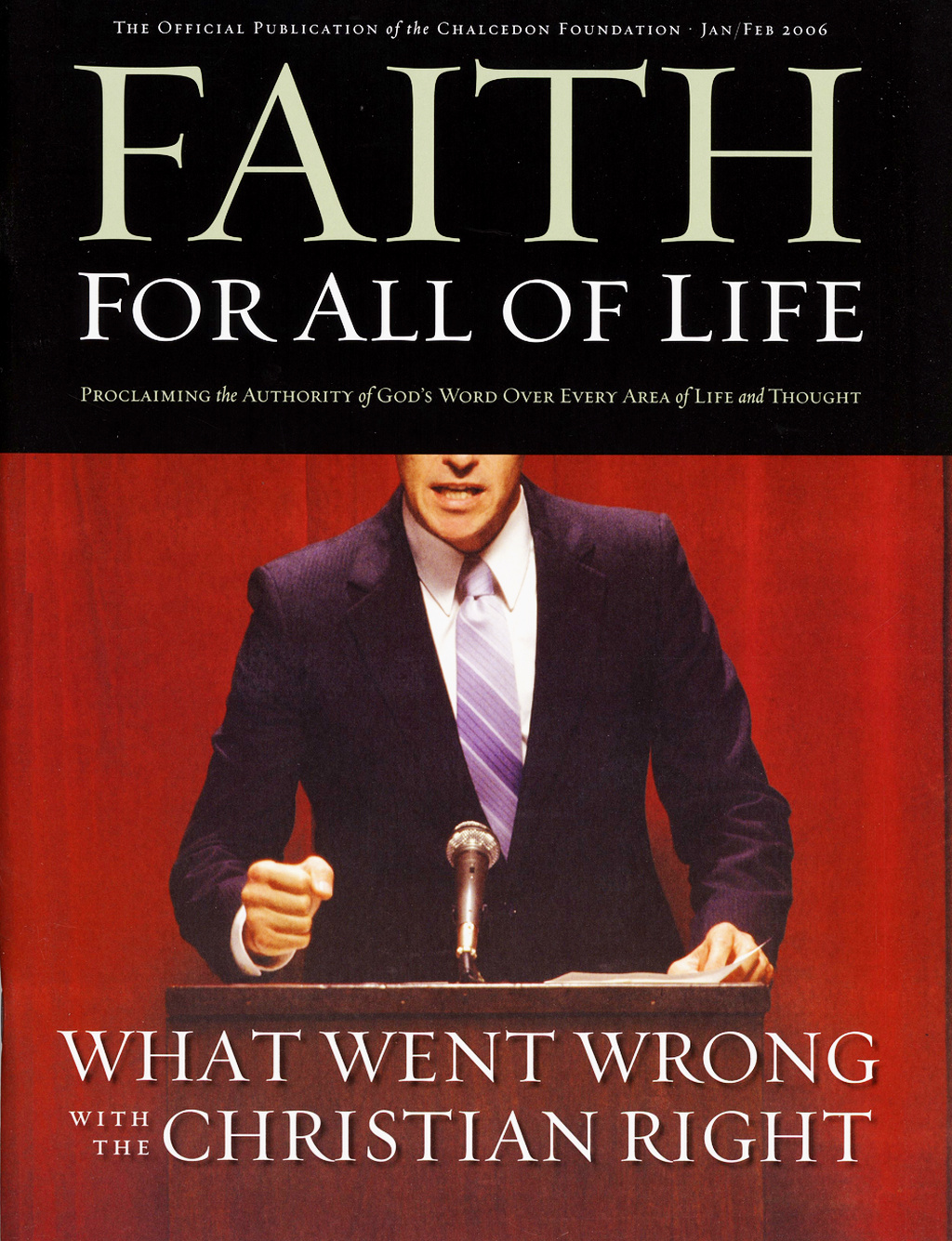
Magazine Issue
What Went Wrong with the Christian Right
January/February 2006 Articles:
Conflict with the State

- R. J. Rushdoony
Christianity in the Public Arena

- Mark R. Rushdoony
Christian Mis-construction
- Christopher J. Ortiz
Covenantal Motherhood: The Splendor of it All
- Amy Hauck
Religious Liberty and God’s Law
- Roger Schultz
What Went Wrong with the Christian Right
- Gary North
I’m Still in Washington
- John Lofton
Economic vs. Political Dominion
- Timothy D. Terrell
The Way We are Changed
- Christopher J. Ortiz
A Review of Commentaries on the Pentateuch. Volume 3: Leviticus

- Martin G. Selbrede
A Review of Harmful to Minors: The Perils of Protecting Children from Sex

- Lee Duigon